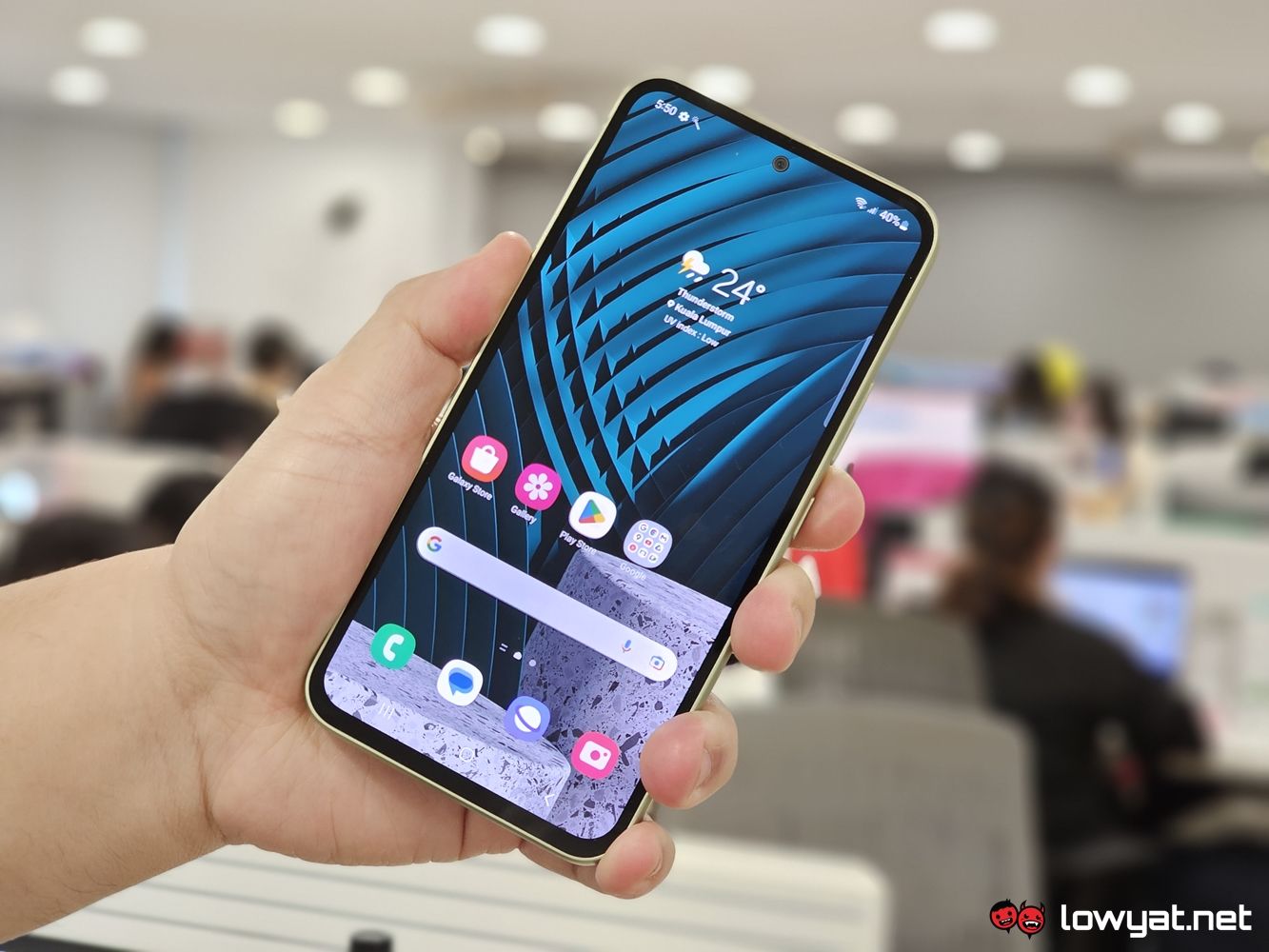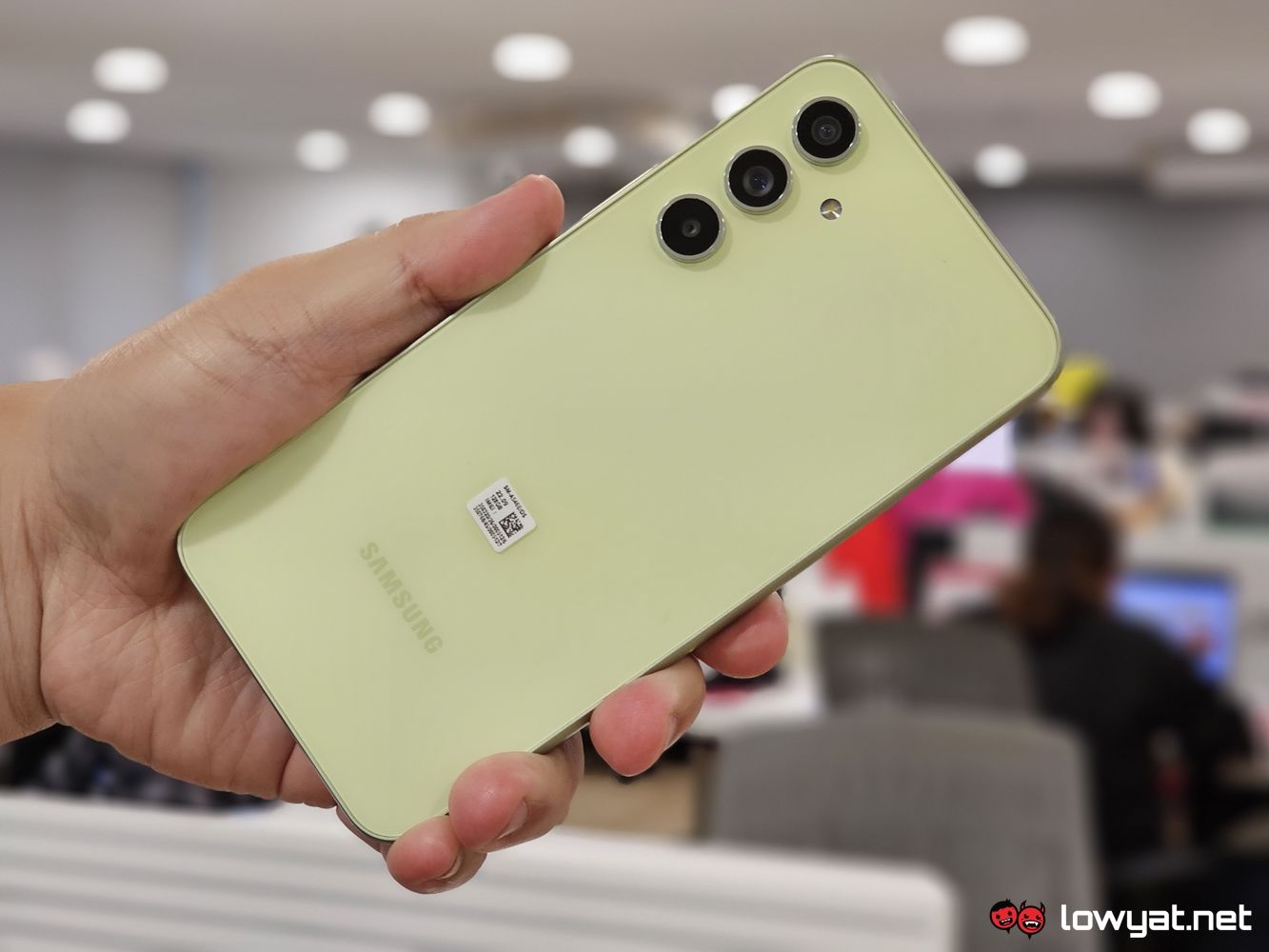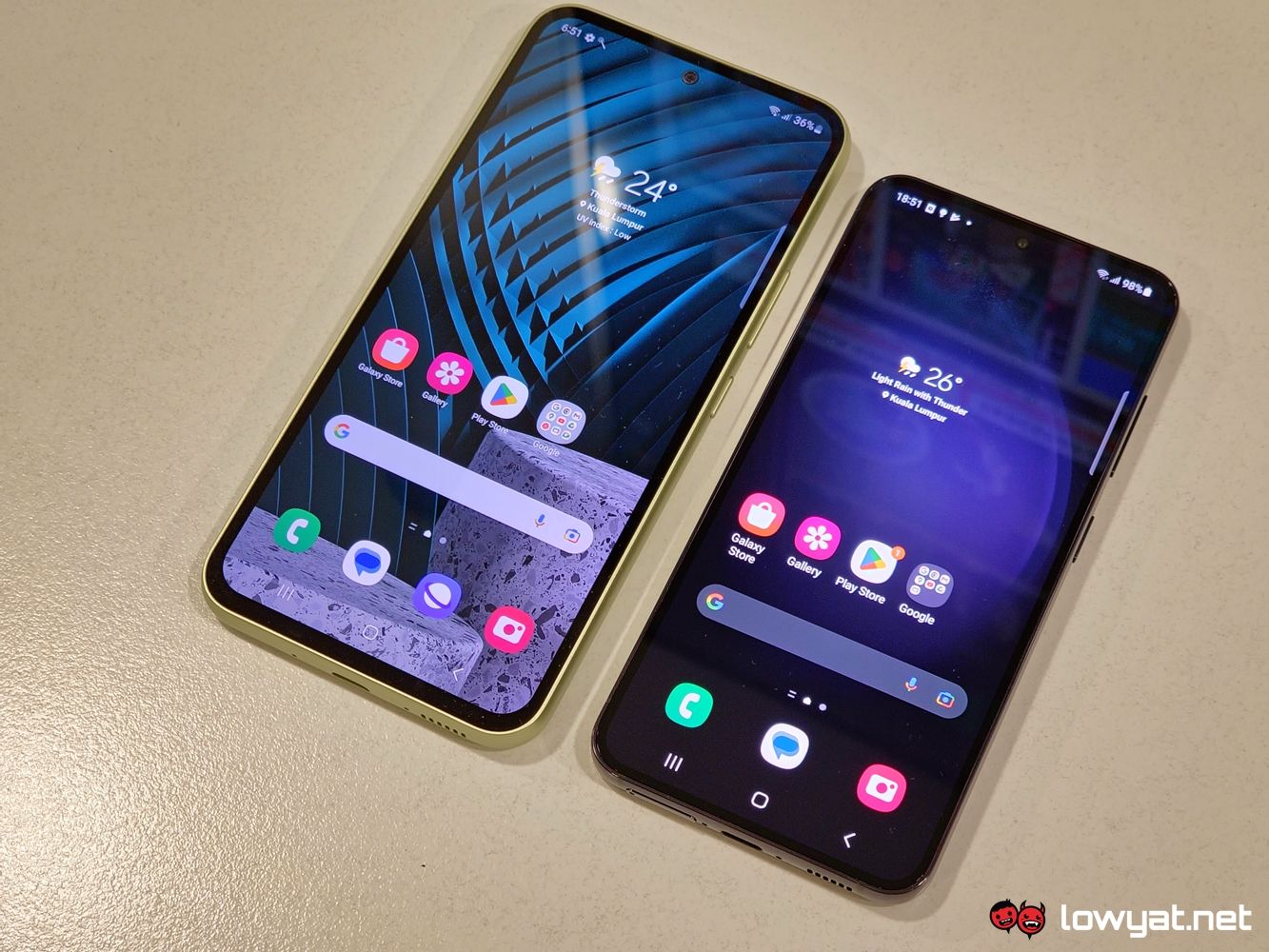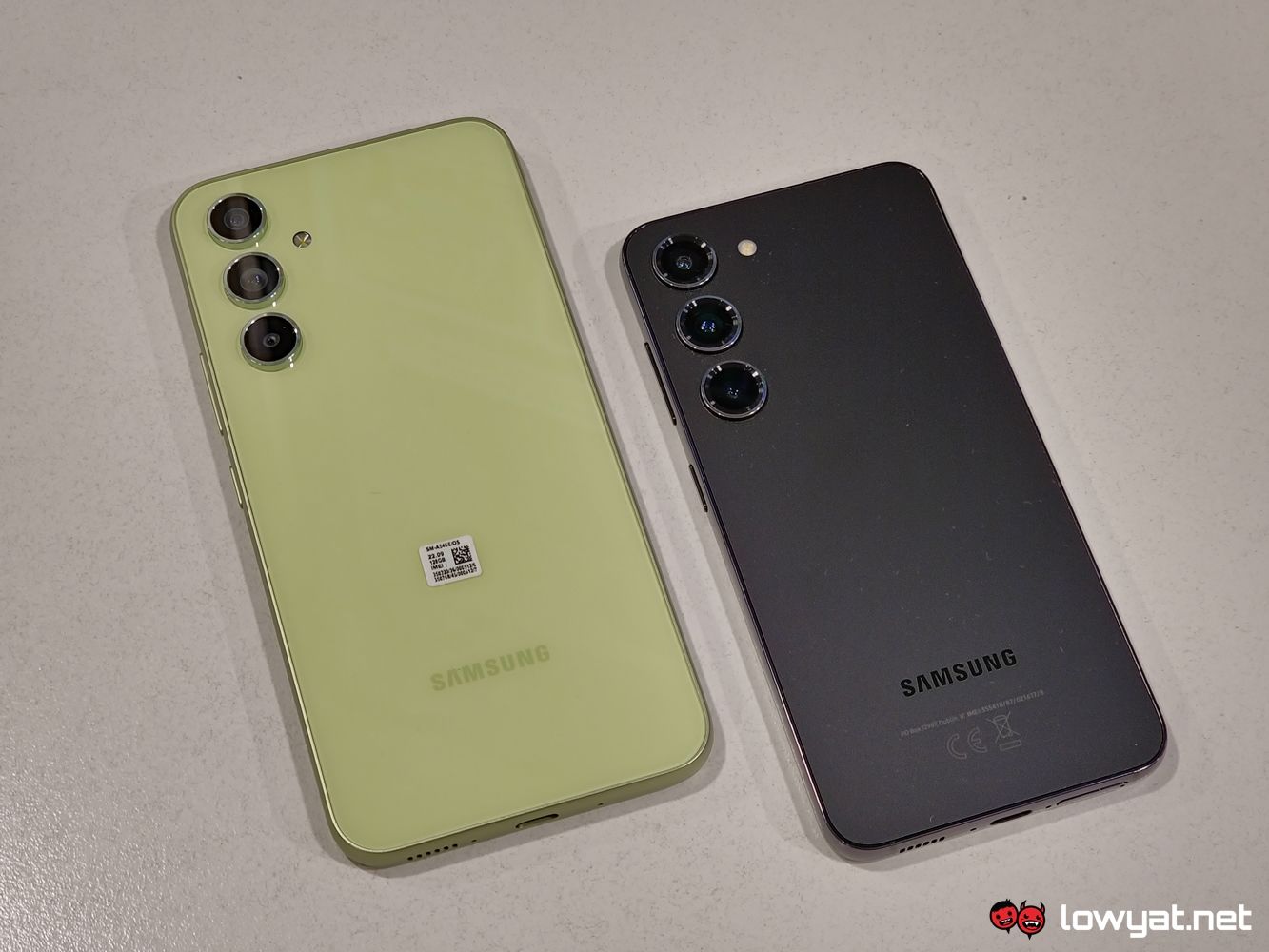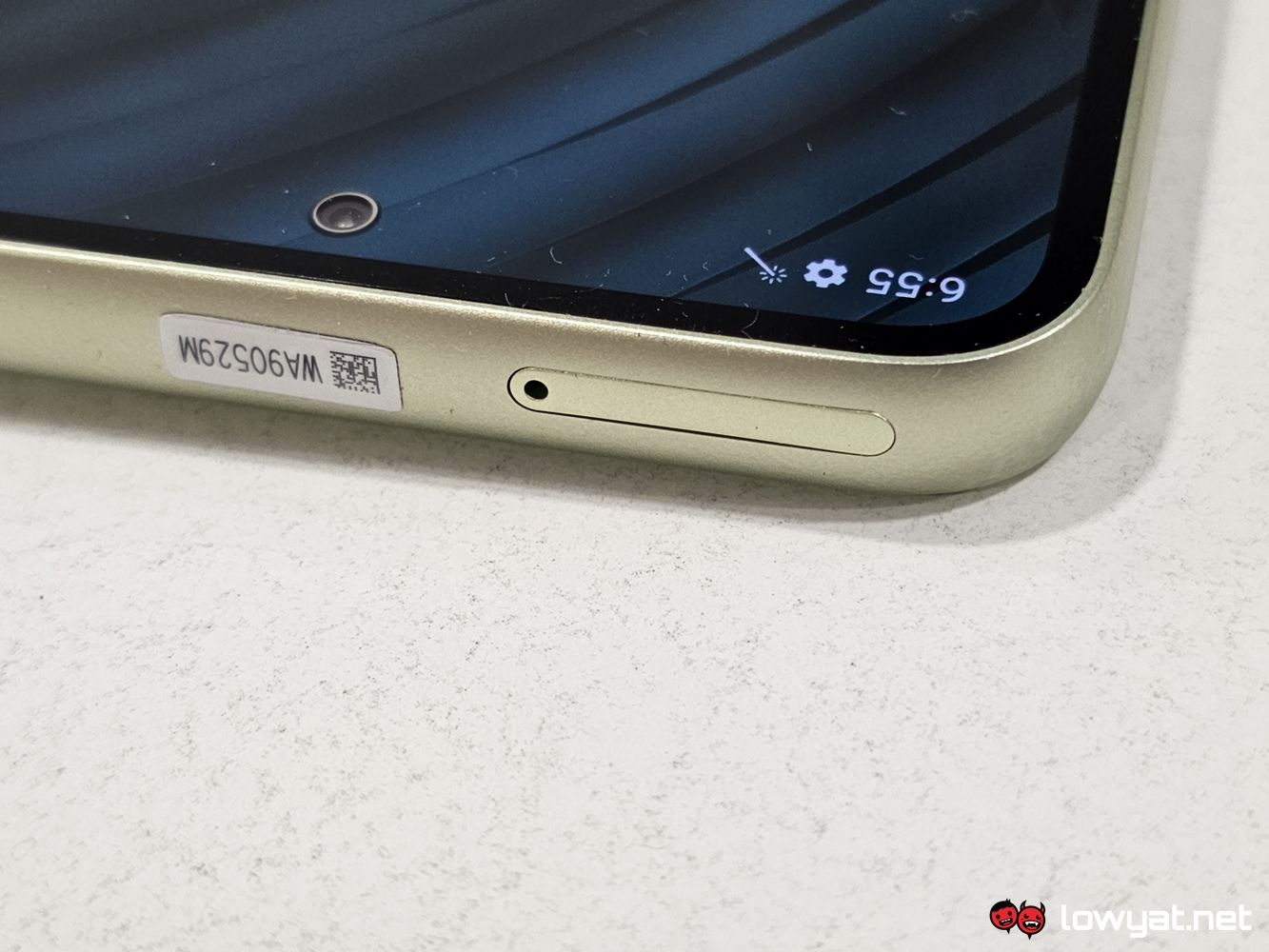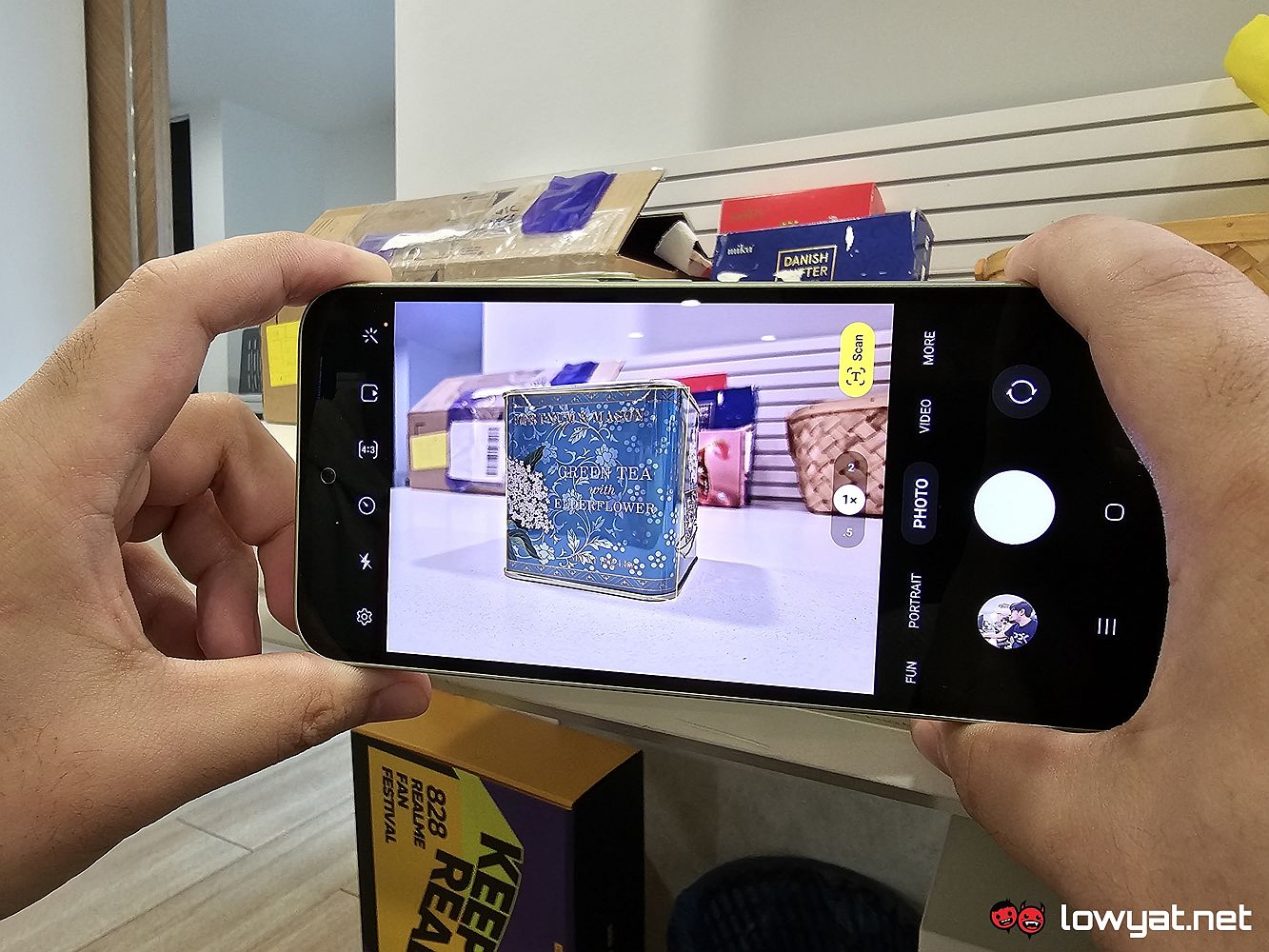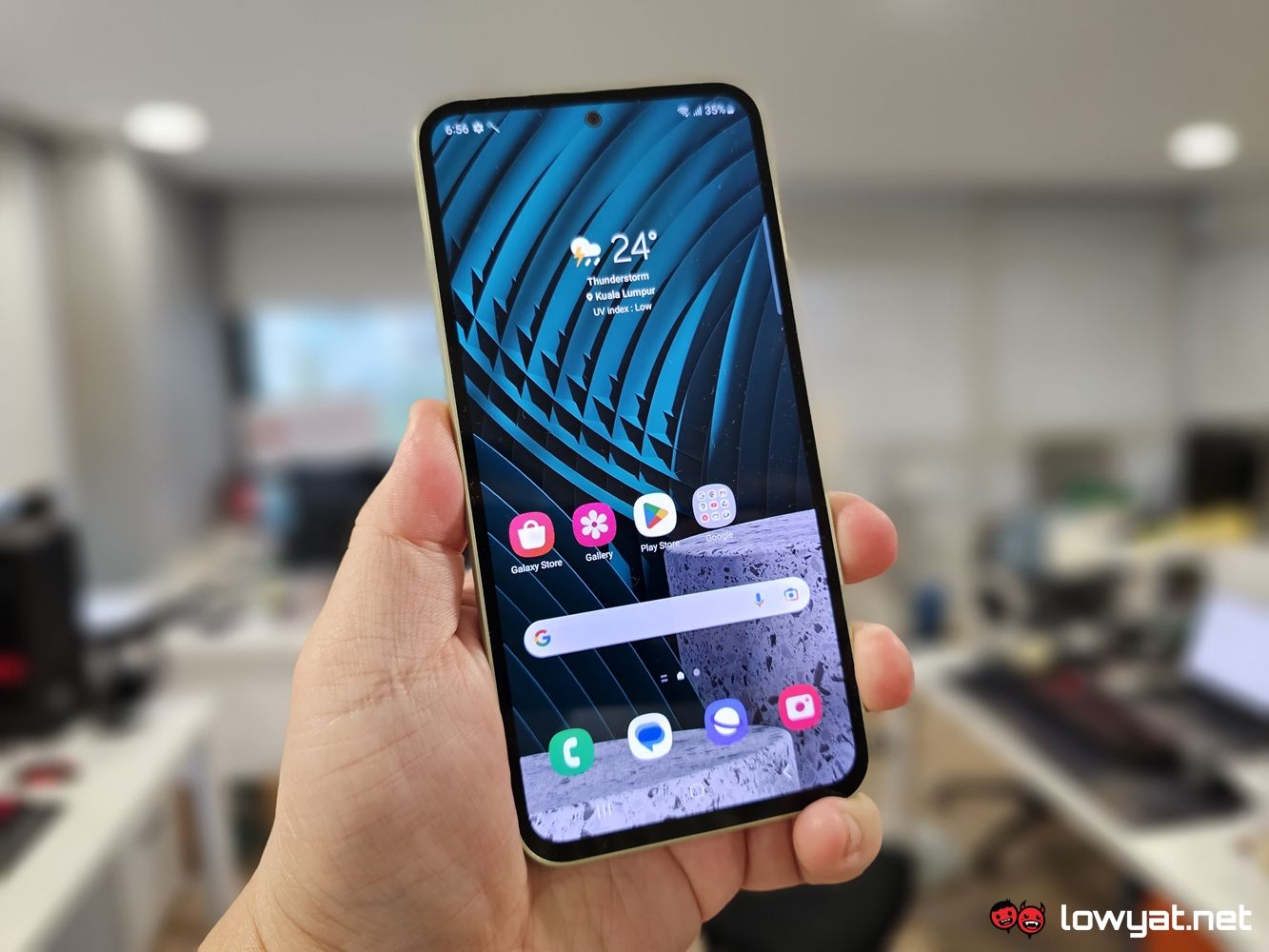Just a couple of days ago, Samsung broke the silence on its next-generation mid-range Galaxy A Series models. Leading the charge on this year’s offensive is, surprisingly, the Galaxy A54, with no sign of an A74 in sight. As the yearly update and the successor to last year’s Galaxy A Series, the phone is a completely different device on the inside and outside, as you’ll see as I break it down in this hands on.
First and as always, let’s talk about design and aesthetics of the Galaxy A54. For a start, it borrows nothing, as well as looks nothing like the A53. Instead, what Samsung has done with the A54 is to take an entire chapter (or two) out of the book of the base Galaxy S23 model, and apply it here. Virtually everything on the outside of the phone is essentially a carbon copy of the S23, to the point that if I were to place both phone side by side, you would be forgiven for mistaking the mid-range as the base model of this year’s flagship series.
Aesthetically, it’s like looking at a watered-down Galaxy S23
Obviously, there are tell-all signs that indicate to you the Galaxy A54’s stature, and all it takes is some close enough attention. For a start, the A54 is bigger than S23; where the former has a display size of 6.5-inches, the latter measures in at 6.1-inches. Also, the phone uses the lower-tier Super AMOLED panel, versus the Dynamic AMOLED X2 display that the S23 is equipped with.
To that end, this also means that colours on the Galaxy A54’s display don’t feel as punchy or as vivid, and actually look a little muted. That isn’t to say it’s not a great display, because it is. But, this is a mid-range phone, so expectations need to be managed. Another dead giveaway of the A54’s pedigree? Those thick bezels that line the edges of the phone. To be fair, I’m not saying that the Galaxy S23 Series have no bezels but by comparison, the ones the A54 are anything but subtle.
Another indicator of the Galaxy A54 are its colour options and glass back. The model I currently have in my hands is the Lime version and if I’m honest, it’s a nice colour. It’s garish and more to the point, it’s a palette you don’t see very often. Well, this, and the yellow iPhone 14 colour option that recently just became available.
While we’re still on the back, you’ll also find the triple camera main module of the Galaxy A54. Again, the design is practically a rip-off from the S23, along with some tweaks. First off, the modules are a little smaller in diametre and slightly taller. Also, and it’s hard not to draw comparisons from both the S23 and iPhone 14 series, the housing of each camera module is reinforced with a metal ring, which makes them stand out even more than the bright colourway.
The feel and hold of the Galaxy A54, for that matter, is solid. It’s got slightly more weight to it than an S23, but in my brief handling of the phone, I find that it’s not cumbersome to wield, compared to other smartphones I have reviewed in the past.
Exynos isn’t dead, and the Galaxy A54 is proof of that.
Moving on, let’s talk hardware specs. At current, the Galaxy A54 may currently be the only Galaxy smartphone of this generation that is wielding its parent company’s homegrown Exynos 1380 SoC. At this point, it’s almost a given that this is going to be the de facto arrangement for its own chipset, seeing how the Korean giant has seemingly reserved Qualcomm’s Snapdragon chipset for its flagship lineup.
Along with the Exynos 1380, the Galaxy A54 in my hands is also flanked with 6GB RAM and an internal storage capacity of 128GB, although it should be noted that there are SKUs of the A54 available with 8GB and a maximum internal storage capacity of 256GB. The icing on this cake here though is that, unlike Samsung’s Galaxy S23 series, this phone supports expandable storage in the form of a hybrid SIM card slot.
At this point, I can and will tell you that the Galaxy A54’s performance isn’t as snappy as Samsung’s flagship tier phones, but that also doesn’t mean that it’s sluggish either. Swiping animations feels more fluid, apps load instantly, but to be fair, this is before I’ve loaded up the phone with all my personal apps yet. An in-depth review of the phone is obviously going to be needed but still, it does look promising.
Then there’s the 5000mAh battery that powers the phone although at this point, there isn’t a lot to say I have to say about this component, seeing how the capacity has sort of become the industry standard or bare minimum, if you will, for both mid-range and high-end smartphones, and the Galaxy A54 appears to be no exception to this rule. That said, I can’t tell you about either the phone’s endurance or how it handles its power management at the moment, as will actually take some proper living with it as a daily driver.
Lastly, there’s the Galaxy A54’s main triple-camera module. Unlike the A53, the main wide sensor of the A54 has been downgraded from 64MP to a 50MP, which is flanked by a 12MP ultrawide and 5MP macro. As you open the camera app, you’re immediately reminded of the phone’s status as a mid-range device; there is a lot of noise visible on the phone’s display, and that’s before I tap the shutter button. Colours also look way washed out or blown out and stay that way, even after I disable the Auto HDR settings.
For that matter, it’s the same story with the final images captured on the Galaxy A54. Oh, and if you’re going to take pictures using the 50MP sensor, it doesn’t have any zoom functions, which is a bit of a letdown. What is surprising is the selfie camera. It remains the same at 32MP, but compared to the main camera, the detail it manages to retain is clearly a lot more than the rear.
That’s all we can tell you about the Samsung Galaxy A54 for now. We’re still waiting for the official SRP of the phone, so check back on this space later.
Follow us on Instagram, Facebook, Twitter or Telegram for more updates and breaking news.

